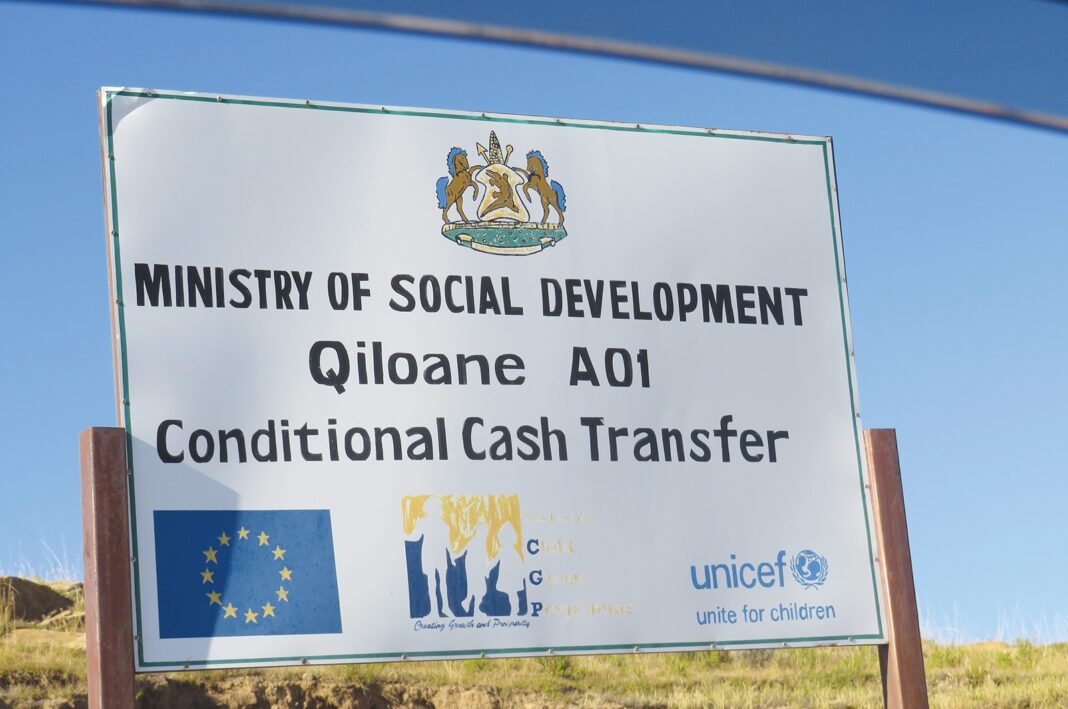By ‘Majirata Latela
The impending repeal of the current Local Government Act 1997 has received the thumps-up from stakeholders such as district administrators (DA) in the country.
This, after the second reading of the Local Government Bill 2020 in the National Assembly by the local government minister Lehlohonolo Moramotse last week, which paves way for the enactment of the new law meant to increase the powers of local councils.
The much-awaited new law will provide for implementation of decentralisation initiatives and bestow more powers to the district and urban councils countrywide.
It will provide for an establishment of autonomous local government structure with executive powers as espoused in the National Decentralization Policy.
Also, the Bill is meant to restructure local councils, enhance local governance, guide and facilitate the progressive realisation of the objectives of and the principles that underlie the decentralisation policy in Lesotho.
The move has been welcome by the district administrators who feel the new legislation will open doors for councillors to exercise their local responsibilities.
Mokhotlong DA, Serame Linake, waxed lyrical about that the amendment of the Local Government Act 1997, saying it is important for councils in Mokhotlong. He was confident the new law will bring a glimpse of hope for councils to execute their development plans, somehow stripping the central government of some powers to control the local governance.
“What happens currently is that we make plans as the district office together with councillors around Mokhotlong on the developments that we want to see happening in our district. We then wait for the central government to come and execute the plans. Also bear in mind that the central government will not have a sense of urgency in those plans.
“The central government is already burdened in how they execute the developments in the 10 districts. That is why I believe that if every district is given the money and powers to execute all their development plans, then the government will have time to deal with building policies and allocating budgets to the councils.
“We have been waiting for this whole time in this office because we did not have the powers as the lower government to serve our communities the best way we know how. After the enactment of the law, Mokhotlong is going to be number one with delivery of services to its community,” Linake said.
He added that Mokhotlong is reach in mineral resources such as diamonds and water and the enactment of the law will help the district office to execute its plans.
Linake cited that projects such as water supply will be planned and implemented in all their phases by the local authorities when the new legislation comes into force.
The tendering process, human resource recruitment and the related works will all be undertaken by the local authorities under the DA ‘s office watch.
His sentiments were echoed by the DA of Leribe, Mohlophehi Mobobelo, who applauded the initiative to amend the law; he said as district councillors and leaders they have to implement much needed developments in the northern district.
He foresaw that efforts allowing them to decide on own various development plans will be a catalyst to create employment within the local settings.
The new law will empower even local businesses to be transformed as the councils will have powers to decide on entrepreneurship practices in in the district. That, he was optimistic, would enable indigenous Basotho to decide on the type of businesses to be run by the foreigners.
The ministry of local government has already submitted a report on the new law to the portfolio committee on the prime minister’s ministries and departments, governance, foreign relations and information cluster.
The committee was informed the Bill seeks to empower elected members to exercise their oversight responsibility over the administration of the local councils. Also, it is meant to separate powers of different role players in the process of decentralization to facilitate intergovernmental relations.
The committee has recommended to the National Assedmbly that the Local Government Bill 2020 be passed with proposed amendments after they concluded that “decentralization is an evolving process which needs regular review of legislature framework to make it responsive to modern challenges.”
The committee also concluded that decentralization policy was adopted in 2014, therefore, the Local Government Act, 1997 needs to be reviewed to align its provisions with the National Decentralization Policy. The Bill provides for the establishment of local governments with some autonomy.
The national decentralisation policy 2014 indicates that the government shall constitute administrative and territorial entities with the status of district, city and municipality, into local governments. The local governments shall have autonomy in decision making to the extent determined by law and exercised in accordance with Article 106 of the Constitution.
Community councillors have in the past called for local governments to be given more autonomy to fulfil their mandate. One of them, Zwane Takane – the chairperson of the Kanana council in Berea, singled out two things which he said were critical for their performance, as a reason for their failure execute develop initiatives.
“These councils are ineffectual; they are not functional, and we are just there to earn salaries. The central government is doing our job, the money and all projects are controlled by the ministries and that means we do not have a budget to implement the projects and developments that our communities are expecting us to do for them,” Takane said.
Takane told this publication in 2020 that even their offices were abandoned. “We do not have stationery or equipment to do even the little things such as land allocation; computers are dead, printing papers and ink are not available.”
The fractured nature of Lesotho’s local governance has previously been noted by Transformation Resource Centre’s Decentralisation Officer, Tšitso Kapa, who said they have been pleading with the central government to implement decentralisation and make sure there is a local government law that is in line with the National Decentralisation Policy of 2014.
Kapa further noted that the 2017 Decentralisation Bill is not in line with the policy which expressly prescribes devolution of power.
“Devolution of power has the aspect of physical decentralisation which is the control of funds, but in that bill local authorities are not given the power to have full control of their funds, namely remittances that they collect.
“Community councils, in this manner, are not allowed to use those collections to run their projects or even run their offices. The monies they collect goes into the government’s revenue collection and when they need to develop their communities they have to request them from the central government which in turn gives them money that is not even enough to run an office for a full financial year,” Kapa said last year.
He added that giving local communities power means giving them the chance to have full control of the developments that are done in their communities. “Let’s take the issue of mines for example; if community councils do have full responsibilities, they would have the responsibilities of making sure that cooperate social responsibilities and compensation of land degradation happen.”
Kapa further said the other aspects of physical decentralisation include having full control of the monies they collect; they would be able to partner with different development partners without having to involve the central government, which usually drags everything that needs to happen at village level because of red tape.









